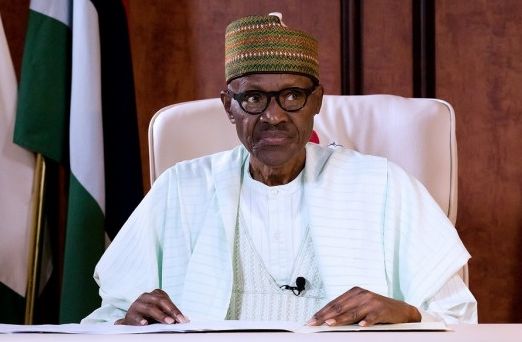Contrary to President Buhari’s claim on Friday that his discussion with
President of the World Bank, Mr. Jim Yong Kim was twisted, a huge chunk
of the institution-backed projects in partnership with Nigeria is based
in the North.
Buhari has always been accused by critics of favouring the northern part
of the country where he comes from, citing lopsidedness in various
appointments made by his administration.
The latest criticism started when Kim divulged that Buhari asked the bank to concentrate on the North.
The Presidency, however, said what Buhari asked for was “rebuilding of the beleaguered North-East.”
But critics argued that the explanation was not tenable because Buhari
was not a president of the North or North-East alone and should be
canvassing for development of all parts of Nigeria, equally affected by
different types of disasters.
Exclusive findings by Punch on the World Bank website showed that out of
the 14 World Bank-sponsored projects in the country, seven are
exclusively for the North, while six others are meant for the whole
nation (South-West, South-South, South-East, North-West, North-East,
North Central and North West); and the remaining one is for Lagos State.
Titled ‘Projects and Operations’, these projects were listed under June
2015 – June 2017 projects.
The implication is that in addition to solely getting the lion’s share
of the projects, the North also shared in the remaining 50 per cent with
the South-West, South-East and South-South.
The projects exclusive to the northern region worth $1bn are:
Multi-Sectoral Crisis Recovery Project for North-eastern Nigeria ($200m;
Borno, Yobe and Adamawa); State Education Program Investment Project
($100m; North-East states); Community and Social Development Project
($75m; Borno, Yobe, Adamawa, Taraba, Bauchi, and Gombe); Youth
Employment and Social Support Project ($100m; Borno, Yobe, Adamawa,
Taraba, Bauchi, and Gombe States); Additional Financing Nigeria State
Health Investment Project ($125m; Bauchi, Borno, Gombe, Taraba and Yobe)
and the Third National Fadama Development Project ($50m; selected area
in the North-East). The seventh northern project worth $350m is for the
Kaduna State Economic Transformation Program-for-Results Project $350m.
The KSETPRP, which was approved in June 2017, is expected to close on
March 31, 2021.
Projects worth $2.9bn were earmarked for the nation which northern
states are also expected to benefit from. They are: Better Education
Service Delivery for All ($611m); Mineral Sector Support for Economic
Diversification Project ($150m); NEITI Reporting Compliance ($0.32m);
the Polio Eradication Support Project ($125m); National Social Safety
Nets Project ($1.8b); and $200m-Agro-Processing, Agricultural
Productivity Enhancement and Livelihood Improvement Support Project
specifically designed for Kano, Kaduna, Lagos, Cross River, Kogi, Enugu
and three other states.
There was also the Third Lagos State Development Policy Operation
($200m), a stand-alone project which was approved on June 26, 2015 and
ended on December 31, 2016.
The World Bank documents did not contain any programme or project
specifically designed for the South-East, South-South and the Middle
Belt regions since Buhari got into power.
A document containing the details of the project on the bank’s website
explained the purpose of the Kaduna project thus: “The development
objective of Kaduna State Economic Transformation Programme-for-Results
Project for Nigeria is to improve the business enabling environment and
strengthen fiscal management and accountability in Kaduna State. This
operation is fully aligned with the World Bank. Group’s Country
Partnership Strategy for the Federal Republic of Nigeria for FY14–FY17.
This Programme-for-Results focuses on increasing the number of jobs in
the modern private sector and boosting the productivity of traditional
economic sectors. Another important and complementary focus of the PforR
is to support Kaduna State to increase its fiscal space and enhance
expenditure effectiveness to boost investments in human capital and
physical assets sustainably.”
According to the bank’s documents, the $200m-MSCRP, meant for only
North-East states, is to “support the government of Nigeria towards
rehabilitating and improving critical service delivery infrastructure,
improve the livelihood opportunities of conflict and
displacement-affected communities, and strengthen social cohesion in the
North-East states of Borno, Yobe and Adamawa; and in the event of an
eligible crisis or emergency, to provide immediate and effective
response to the said eligible crisis or emergency.”
Similarly, the SEPIV’s objective is to finance activities to support the
Federal Government’s emergency programme for the North-East to address
teachers’ needs in conflict-and-displacement-affected areas; strengthen
school-level management and accountability for the improvement of
education quality through school grants funding; “and to enhance
technical assistance to address the needs of the North-East.”
For the CSDP, the World Bank will finance the costs associated with
scaling up project activities in Borno, Yobe, Adamawa, Taraba, Bauchi,
and Gombe states to support the provision of basic social and natural
resource management infrastructure and services to returnees and host
communities with the main goal of assisting their resettlement,
recovery, and welfare.
The fund, the document said, would also be “used to provide trauma and
psychosocial support to returnee households and internally displaced
groups and individuals, as a form of social assistance intervention.”
Shedding light on why half of the projects were exclusively allocated to
the North and no special projects for the other regions, the World Bank
boss at a press conference in Washington DC, on Thursday, had disclosed
that the bank focused more on the region based on Buhari’s request.
Reacting, the PDP said the President’s approval of more World Bank
projects for the North, as revealed by Kim, was not in the interest of
the country.
PDP spokesman, Dayo Adeyeye, said, “We’ve always said Buhari is not
acting as the president of the country. He has demonstrated that through
his lopsided appointments. That’s all we can say.”
Also, a nationalist and elder statesman, Chief Ayo Adebanjo, told Punch
that Kim only confirmed what people already know about Buhari’s
preference for the North.
“Is it those he surrounds himself with? Is it about the lopsided
appointments he’s made? Buhari telling the World Bank president that
more attention should be given to the northern region shows which
section of the country matters most to the president. Buhari can never
change. He’s a sectional leader,” he said.





